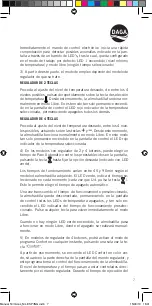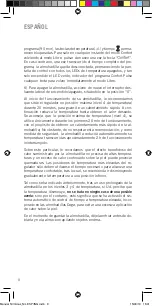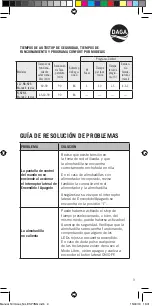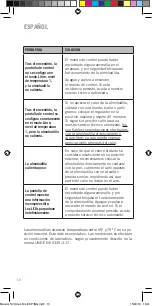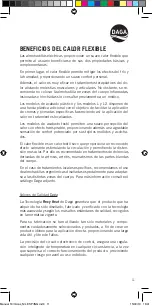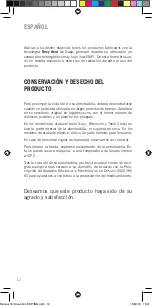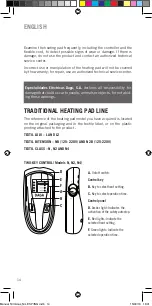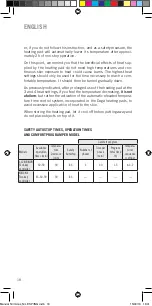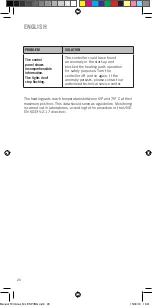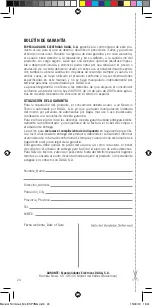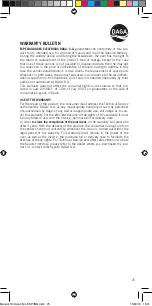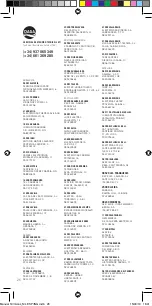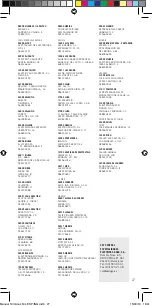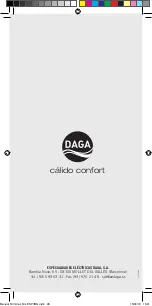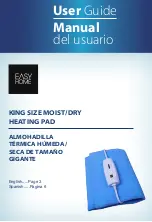
21
BENEFITS OF FLExIBLE HEAT
The electric heating pads provide soft flexible heat letting the user
take advantage of its two basic and complementary properties.
First, flexible heat mitigates the effects of the cold and humidity, of-
fering personal comfort.
Also, heat is very efficient in therapeutic pain treatments to alleviate
muscular and articular discomfort. However, we recommend that you
do not apply the heating pad to areas of the body that are swollen,
injured or bloated without first consulting your doctor.
The plastic models and the L and L2 models have an extra plastic
cover to make the application of lotions and special ointments easier
and help heat penetration to local areas.
The cloth models give smooth heat that transpires and their fluffy and
soft cloth give a sensation of comfort.
Flexible heat is a dry heat that creates a calming effect, stimulates
the circulation and reduces muscles tension. For these reasons, it
is recommended in pain treatments such as arthrosis, arthritis and
rheumatism in the soft parts of the body.
For specific localized treatments, we recommend the use of ergonom-
ic heating pads designed especially to adapt to specific body parts.
For more information, consult the attached Daga catalogue.
Values of Daga Quality
The Daga
Flexy Heat
technology guarantees that the product you have
acquired has been designed, manufactured and verified using the lat-
est technology and in compliance with the highest quality standards.
The heating pads are manufactured using only carefully chosen and
tested material and components to offer the ideal direct-application,
long-life and defect-free product.
The precision of the electronic control circuit ensures intelligent heat
regulation while it supervises correct product operation, preventing
any risk of failure or wrongful use.
Thanks to the special design, all the products made with Daga
Flexy
Heat
technology generate a very low electromagnetic field (EMF). This
way, the user is not exposed to radiation while using the product.
Manual Térmicas_N/L ESP/ING.indb 21
15/03/10 16:41

